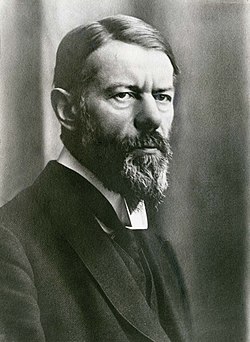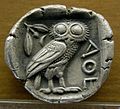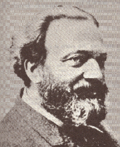Knowledge and Human Interests (German: Erkenntnis und Interesse) is a 1968 book by the German philosopher Jürgen Habermas, in which the author discusses...
22 KB (2,471 words) - 15:30, 23 October 2024
Antihumanism (section Positivism and scientism)
theory and philosophy, antihumanism or anti-humanism is a theory that is critical of traditional humanism, traditional ideas about humanity and the human condition...
24 KB (3,062 words) - 19:32, 5 August 2025
Theodor W. Adorno (section Life and career)
repressive society acting against fundamental human interests. Adorno always remained a supporter and defender of Freudian orthodox doctrine, "psychoanalysis...
99 KB (13,273 words) - 08:53, 25 July 2025
Auguste Comte (section Auguste Comte and reflexivity)
science and the observation of natural law to justify what we believe to be true within society. The condensing and formulation of human knowledge is what...
63 KB (8,257 words) - 10:01, 9 August 2025
2 December 2023. Russell, Bertrand (1948). Human Knowledge: Its Scope and Limits. London: George Allen and Unwin. p. 397. Donald Cary Williams (1947)...
33 KB (4,396 words) - 23:32, 30 May 2025
Structuralism (category Linguistic theories and hypotheses)
is an intellectual current and methodological approach, primarily in the social sciences, that interprets elements of human culture by way of their relationship...
33 KB (3,969 words) - 05:35, 30 July 2025
Falsifiability (section Induction and demarcation)
published 1923]. Human Knowledge: Its Scope and Limits. George Allen and Unwin Ltd. Rynasiewicz, Robert A. (1983). "Falsifiability and the Semantic Eliminability...
117 KB (13,604 words) - 18:06, 8 August 2025
private mental state. In phenomenology, evidence is limited to intuitive knowledge, often associated with the controversial assumption that it provides indubitable...
46 KB (5,437 words) - 07:44, 9 August 2025
Wilhelm Dilthey (category German Calvinist and Reformed Christians)
university, Dilthey's research interests revolved around questions of scientific methodology, historical evidence and history's status as a science. Dilthey...
28 KB (2,894 words) - 16:27, 9 July 2025
Max Weber (category Critics of work and the work ethic)
Übermensch and expressed the quality of human action by ceaselessly striving for knowledge. Karl Marx's writings and socialist thought in academia and active...
166 KB (20,437 words) - 18:03, 8 August 2025
and software engineering research. Qualitative research has been informed by several strands of philosophical thought and examines aspects of human life...
46 KB (5,294 words) - 17:03, 26 July 2025
philosophical statements as well as scientific theories, and align all human knowledge into a scientific worldview, freeing humankind from so many of its...
24 KB (3,171 words) - 23:16, 24 October 2023
merely human subject or mind. In the late 19th century, an even more extreme form of phenomenalism was formulated by Ernst Mach, later developed and refined...
11 KB (1,449 words) - 13:46, 18 February 2025
Gaston Bachelard (section Early life and education)
scientists overcome the obstacles to knowledge. Another goal is to “give back to human reason its function of agitation and aggressiveness” as Bachelard put...
23 KB (2,566 words) - 19:14, 2 August 2025
Knowledge is an awareness of facts, a familiarity with individuals and situations, or a practical skill. Knowledge of facts, also called propositional...
187 KB (19,036 words) - 06:23, 7 July 2025
professional interests and political ideologies. Barry Barnes detailed the connection between the sociology of scientific knowledge and Kuhn in his book...
61 KB (7,935 words) - 00:55, 6 August 2025
Human Concept of the World, 1891) which influenced Ernst Mach, Ber Borochov and, to a lesser extent, William James. He taught Anatoly Lunacharsky and...
5 KB (490 words) - 04:40, 20 April 2025
published. Jürgen Habermas' Knowledge and Human Interests is published. Viola Klein's and Alva Myrdal's Women's Two Roles: Home and Work, 2nd edition is published...
9 KB (1,027 words) - 03:26, 13 March 2025
postpositivism, where Popper's view of human knowledge as hypothetical, continually growing and open to change ascended and verificationism, in academic circles...
19 KB (2,036 words) - 13:31, 2 July 2025
Structural functionalism (redirect from Functionalism (anthropology and sociology))
human mind, seeking the essential nature of beings, the first and final causes (the origin and purpose) of all effects—in short, absolute knowledge—supposes...
53 KB (6,912 words) - 08:59, 3 June 2025
"length" logically is not one concept but many, with some concepts requiring knowledge of geometry.[citation needed] Each concept is to be defined by the measuring...
18 KB (2,244 words) - 04:36, 21 July 2025
A. J. Ayer (category Fellows of the American Academy of Arts and Sciences)
in his books Language, Truth, and Logic (1936) and The Problem of Knowledge (1956). Ayer was educated at Eton College and the University of Oxford, after...
38 KB (4,079 words) - 16:23, 7 August 2025
Dawkins and Alan Sokal as presenting a relativist view of scientific progress. In Situated Knowledges: The Science Question in Feminism and the Privilege...
13 KB (1,397 words) - 02:32, 18 June 2025
Legal positivism (section Etymology and semantics)
established (that is, "posited") by human beings, and that this act of positing the law makes it authoritative and binding.[better source needed] According...
32 KB (4,181 words) - 22:48, 20 July 2025
human behavior from an unbiased, neutral point of view, focusing only on what can be verified by direct observation, preferably using statistical and...
15 KB (1,731 words) - 16:02, 24 May 2025
Empiricism (category Internalism and externalism)
epistemological view which holds that true knowledge or justification comes only or primarily from sensory experience and empirical evidence. It is one of several...
53 KB (6,678 words) - 22:23, 21 June 2025
Meaning (philosophy) (section Truth and meaning)
Habermas, Jürgen, Knowledge and Human Interests (English translation, 1972). See e.g. Habermas, Jürgen, Knowledge and Human Interests (English translation...
47 KB (6,498 words) - 08:03, 12 July 2025
Logical positivism (category Philosophical schools and traditions)
rationalism—which characterised human knowledge as continuously evolving via conjectures and refutations—and Kuhn's historical and social perspectives on the...
63 KB (6,900 words) - 19:56, 19 June 2025
Truth (section Etymology and ordinary usage)
Habermas, Jürgen, Knowledge and Human Interests (English translation, 1972). See, e.g., Habermas, Jürgen, Knowledge and Human Interests (English translation...
100 KB (12,622 words) - 12:49, 31 July 2025
György Lukács (section Life and politics)
Lukács's interests in his last years at Heidelberg. As a salon, the Sunday Circle sponsored cultural events whose participants included literary and musical...
76 KB (8,780 words) - 23:33, 8 August 2025















